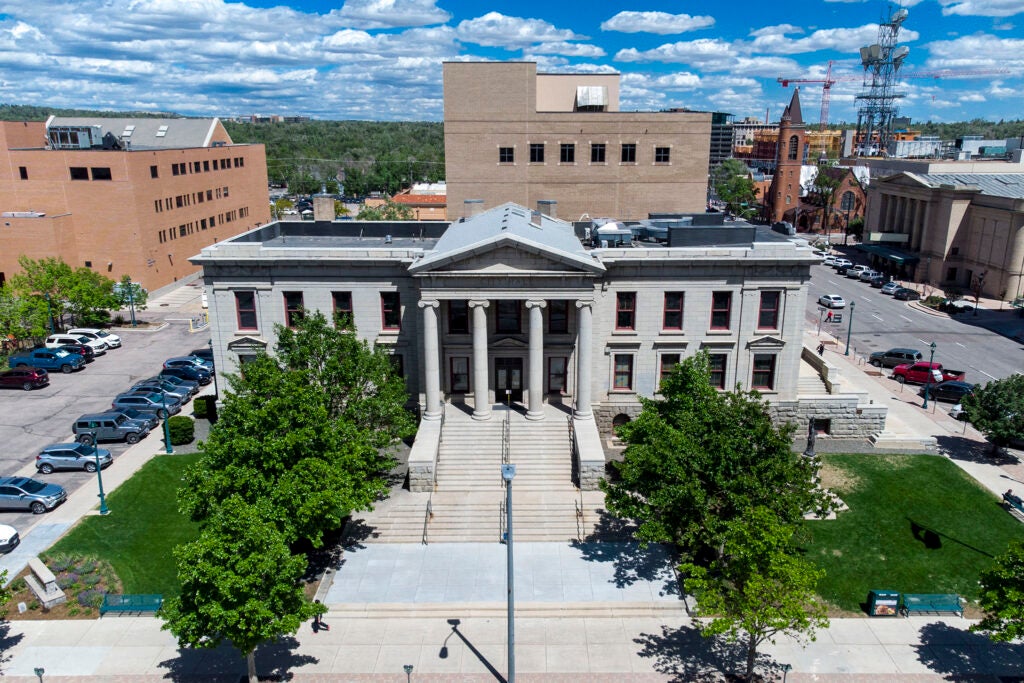The Election Law Clinic is representing Plaintiffs Citizens Project, Colorado Latinos Vote, the League of Women Voters of the Pikes Peak Region, and the Black/Latino Leadership Coalition in a lawsuit challenging the timing of off-cycle municipal elections in the City of Colorado Springs. The City’s unusual practice of holding non-November elections disproportionately impacts Hispanic and Black residents and violates the Voting Rights Act of 1965.
Via CPR
By Abigail Beckman
The city of Colorado Springs is facing a lawsuit alleging racial discrimination in local elections.
The Citizens Project, Colorado Latinos Vote, League of Women Voters of the Pikes Peak Region and the Black/Latino Leadership Coalition filed the June 1 suit on the grounds that “the timing of Colorado Springs’ elections for city council and Mayor massively disadvantages Hispanic and Black residents.”
The groups want the city to move municipal April elections to November. Colorado Springs is one of only three cities in the state to hold municipal elections in April of odd-numbered years, according to the lawsuit.
Colorado Springs holds elections on the first Tuesday of April in odd-numbered years.
The lawsuit says Colorado Springs’ political processes are ‘not equally open to participation’
The suit says non-white registered voters are about half as likely to participate in off-year April elections when compared to white registered voters, making the city’s political processes “not equally open to participation” by Hispanic and Black voters.
Mike Williams, executive director of Citizens Project, said voter turnout in November is more diverse.
“Realistically, ongoing and historical discrimination makes it like much harder for non-white residents to participate in elections,” Williams said. “Our hope with this is to make sure that the people of the city’s voices are heard and they’re able to vote and access the elections fairly as they should be able to.”
The lawsuit says only about 16 percent of the city’s non-white registered voters participate in April off-year elections. The turnout rate for white voters is 32 percent. The number of non-white voters casting ballots jumps to an average of about 64 percent during elections held in November of even-numbered years.
“The city’s saying they don’t want the city election to be buried in a November election, but I think that people are going to turn up and vote in November, generally speaking,” Williams said. “It just would make sense for the city to capitalize on that and have all those voters really be heard at the same time.”
Click here to read more about the Election Law Clinic’s case.
Filed in: In the News, Legal & Policy Work
Tags: Election Law Clinic
Contact Office of Clinical and Pro Bono Programs
Website:
hls.harvard.edu/clinics
Email:
clinical@law.harvard.edu
